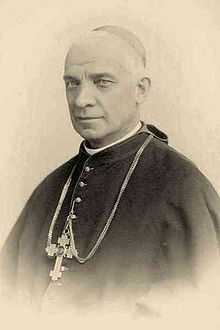Jus exclusivae

Jus Exclusivæ (Latin for "right of exclusion"; sometimes called the papal veto) was the right claimed by several Catholic monarchs of Europe to veto a candidate for the papacy. At times the right was claimed by the French monarch, the Spanish monarch, the Holy Roman Emperor, and the Emperor of Austria. These powers would make known to a papal conclave, through a crown-cardinal, that a certain candidate for election was considered objectionable as a prospective Pope.
Early history
This right seems to have been claimed during the 17th century. It does not seem to be related to a right exercised by Byzantine emperors and Holy Roman Emperors to confirm the election of a Pope, which was last exercised in the Early Middle Ages. Spain, which ruled much of Italy at the time, raised the claim in 1605. In 1644, in the conclave which elected Cardinal Giovanni Battista Pamphili (who became Pope Innocent X), Jus Exclusivæ was first exercised, by Spain, to exclude Cardinal Sacchetti. Cardinal Jules Mazarin of France arrived too late at that conclave to present the veto of France against Cardinal Pamphili, who had already been elected. Around this period, treatises arise in defence of this right. At the 1846 conclave, Austrian Chancellor Klemens von Metternich confided Austria's veto of Cardinal Giovanni Maria Mastai-Ferretti (who became Pope Pius IX) to Cardinal Carlo Gaetano Gaisruck, Archbishop of Milan, who arrived too late. [1]
Similar actions prior to 1644
- Papal conclave, 1314–1316 - the Count of Forez vetoed Arnaud Fournier on behalf of Philip, Count of Poitiers (future Philip V of France)
Instances of Jus Exclusivae being exercised after 1644
- Papal conclave, 1644 – Giulio Cesare Sacchetti, by Philip IV of Spain
- Papal conclave, 1655 – Giulio Cesare Sacchetti, by Philip IV of Spain
- Papal conclave, 1669-1670 – Benedetto Odescalchi, by Louis XIV of France; however, Cardinal Odeschalchi became Pope Innocent XI in 1676
- Papal conclave, 1700 – Galeazzo Marescotti, by Louis XIV of France
- Papal conclave, 1721 – Fabrizio Paolucci, by the Emperor Charles VI; and Francesco Pignatelli, by Philip V of Spain
- Papal conclave, 1730 – Giuseppe Renato Imperiali, by Philip V of Spain
- Papal conclave, 1740 – Pier Marcellino Corradini, by Philip V of Spain
- Papal conclave, 1758 – Carlo Alberto Guidoboni Cavalchini, by Louis XV of France
- Papal conclave, 1774-1775 - Giovanni Carlo Boschi, by the Bourbon courts
- Papal conclave, 1823 – Antonio Gabriele Severoli by Francis I of Austria
- Papal conclave, 1830-1831 – Giacomo Giustiniani, by Ferdinand VII of Spain
- Papal conclave, 1903 – Mariano Rampolla, by Franz Joseph I of Austria-Hungary
Papal attitude toward the Jus Exclusivae
The right has never been formally recognised by the papacy, though conclaves have considered it expedient to recognise secular objections to certain papabili (persons considered as likely candidates for the papacy), and to accept secular interference as an unavoidable abuse. By the Bull In eligendis (9/10/1562) Pope Pius IV ordered the cardinals to elect a Pope without deference to any secular power. The Bull Aeterni Patris Filius (15/11/1621) forbids cardinals to conspire to exclude any candidate. These pronouncements however, do not specifically condemn the jus exclusivae. In the Constitution In hac sublimi (23/08/1871) Pius IX did however forbid any kind of secular interference in papal elections. The most recent exercise of the right (in 1903 to exclude Cardinal Rampolla) was deplored by the conclave that elected Cardinal Sarto (Pius X) instead. Pius X absolutely forbade the jus exclusivae in the Constitution Commissum Nobis (20/01/1904)"
| “ | Wherefore in virtue of holy obedience, under threat of the Divine judgment, and pain of excommunication latae sententiae… we prohibit the cardinals of the Holy Roman Church, all and single, and likewise the Secretary of the Sacred College of Cardinals, and all others who take part in the conclave, to receive even under the form of a simple desire the office of proposing the veto in whatever manner, either by writing or by word of mouth… And it is our will that this prohibition be extended… to all intercessions, etc… by which the lay powers endeavour to intrude themselves in the election of a pontiff… Let no man infringe this our inhibition… under pain of incurring the indignation of God Almighty and of his Apostles, Sts. Peter and Paul. | ” |
The cardinals in conclave were enjoined to take this oath: "we shall never in any way accept, under any pretext, from any civil power whatever, the office of proposing a veto of exclusion even under the form of a mere desire… and we shall never lend favour to any intervention, or intercession, or any other method whatever, by which the lay powers of any grade or order may wish to interfere in the election of a pontiff".
No power has attempted to exercise the right since 1903. Heads of states do still however maintain an interest in papal elections, on account of the worldwide influence the papacy exercises. It is not impossible that a secular power could influence a conclave but conclave regulations minimize the possibility.
See also
Notes
- ↑ Burkle-Young 2000, p. 34.
References
- Catholic Encyclopedia, Right of Exclusion.
- Burkle-Young, Francis A. (2000), Papal Elections in the Age of Transition, 1878-1922, Lexington Books, retrieved 2012-07-15.